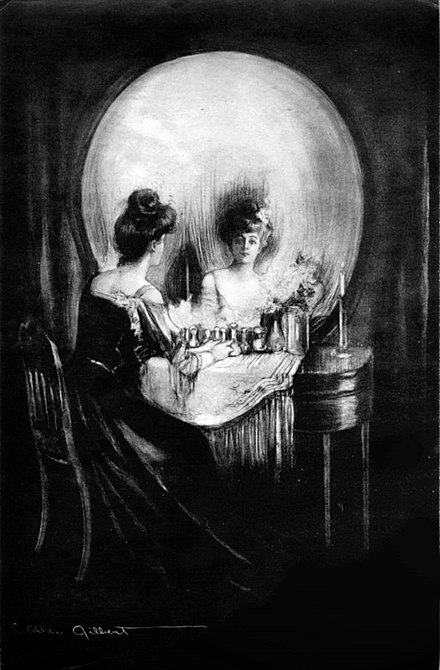Vanity Fair
By Anthony de Jasay

France is bidding to be the leader of Europe, never mind if such leadership risks getting no followers.
As you make your way in life, you may have met the woman (and perhaps man) who dresses a bit more expensively than she could afford, who talks pleasantly and plausibly, and who exemplifies a “life-style” that can make others envious. All these are just venial sins on the part of the individual; but this can be serious and dangerous behaviour on the part of the leader, the politician, the governor, and the general, as well as of entire classes of a society. The intention of the vain is to impress friend and foe, and impressing the friend can be as dangerous as alerting the foe. Historians looking backwards see how a country has fared and usually diagnose a certain strategy that paid the country well, or one that was a mistake and had to be paid for dearly. England grew powerful and rich by having a navy and moving whole-heartedly into the Industrial Revolution. The Holy Roman Empire suffered from the fatal religious strife between Catholicism and Protestantism. Seldom does the historian put the blame for the decline of a country on the vanity of its leaders and on the people who followed them in their vanity. The history of France is perhaps an exception for the historian, because for many historians it was an uninterrupted sequence of plays for high stakes, but played with cards, which were usually not good enough. Of the two events in which vanity played a fatal card, one was during the reign of Louis XIV, who forced the country to continually sacrifice men and treasure in wars of territorial expansion, which were in large part just lost again. The second one was with Napoleon a century later, whose victories ended in his exile and whose country was obliged to accept the role that the victorious powers imposed for it in the Congress of Vienna. These two fatal events, instead of giving France a lesson, have on the contrary seemed to move vanity to a permanent part of the French national ethos.
Federalism, not Subsidiarity
When the treaties of the European Union were being prepared for the public in the member countries to accept, Eurocrats made great play with “subsidiarity.” European politicians were assured that Brussels would not take away much, if anything, of their power to govern their countries, and people anxious about the loss of independence and sovereignty had nothing to fear about federalism. There was no danger about national sovereignty because everything that could be decided, national governments were assured, would continue to be decided at the national level or even by local governments, and would not be referred to and decided by the federal government in Brussels that the European treaties were preparing to establish. With less than a generation gone by, subsidiarity is hardly ever mentioned anymore, and Eurocrats seem to be convinced that the European Union ought to develop and become more powerful by becoming more and more federal. France is at the forefront of this federalist sentiment. French intellectuals seem to dream of Brussels as it was in the years 1985 to 1995 when Jacques Delors, the iron handed former socialist French Minister of Finance was President of the European Commission, and French civil servants delegated from Paris occupied the most powerful posts of the Brussels administration. There is now a prospect, though probably not a probability, that this kind of dream can once again be dreamed.
On the 27th of September, Emmanuel Macron, France’s freshly elected President, gave a well-attended talk at the Sorbonne, Paris’s most ancient university, on the subject of the route the EU ought to follow in the ten years to come. For those who did not know who he was, he sounded like the self-appointed President of the European Union, telling the public about a detailed program he was to follow in governing the EU. His audience must have had little doubt that President Macron’s program is also an expression of the French political vanity that is to be satisfied after having been unsatisfied and in decline for the last century or so.
“Nobody has asked, or at least not aloud, why President Macron felt it to be his role to set out what should be done in the European Union in the decade to come.”
Nobody has asked, or at least not aloud, why President Macron felt it to be his role to set out what should be done in the European Union in the decade to come. A bona fide answer may be that there was no one else to fill the role or willing to play it, and because the EU alone was able to bring about all the good things that its member states were unable or unwilling to do in isolation. Neither of the two conditions is necessarily true.
All the points in the Macron program appeared to have something desirable. It is difficult to decide which ones are the most important. There is, for instance, the proposition to make a common minimum wage for the entire European Union. This would reduce the incentive of the people of the poor countries of the Union, for instance Romania, Bulgaria, and Greece and perhaps also Poland and Slovakia, to seek work in the richer countries while also benefiting from the lower social charges in their home countries. In this way, the so called “disloyal” competition for jobs would be reduced. It is, however, the case that identical minimum wages would also reduce the incentive for capital from Western Europe to migrate to the relatively poor Eastern European countries and to help develop their industries. Nor is it obviously a good thing for the corporate tax of each EU country to be roughly the same so has to have no incentive to make profits realised in one country rather than in another. Many of the proposed programs of the ten years to come have to do with education. There is to be a greater coordination between the teaching and the diplomas offered by the schools of each country, for young people from one European country to spend half a year in another European country and for about twenty new European universities to be established. Young soldiers could voluntarily serve for some time in the armies of other European countries. There is to be a joint military intervention force and also a joint military budget. There is also to be a reform of European agriculture, though it was not easy to see how farmers could get a more adequate price for their produce without consumers having to pay more of it. The Sorbonne program speaks more loudly of how money is to be spent, and less to explain how it is to be gained. There is to be a budget (there is already one every year in the financial management of the European Union) as well as a minister of finance. (Again, there already is one, Pierre Moscovici the European commissioner for economic and financial affairs, who has already signified that he will be a candidate for the new post of European finance minister). There are all the usual revenues of the European commission, much of which are being spent in the common agriculture policy. Where is the new revenue to finance the new expenditure envisaged? Mr. Macron in his speech spoke of the so-called Tobin Tax, [see James Tobin] which all the experts have condemned as useless and counter-productive. There was also mention of a corporate tax which is going to be harmonised. Unfortunately, this is not to be a source of additional revenue because the harmonisation is expected to result in a European corporate tax whose average will in fact be lower than at present. Finally, the Sorbonne speech counts on a new tax to be levied on the European earnings of a half a dozen giant American high-tech companies, who at present pay no American corporate tax because their earnings are not repatriated to America. It is from this untaxed money left in Europe that a new European tax is supposed to be found. However, the American tax law is likely to be modified, so that the European earnings of the high-tech giants will be repatriated to America and their availability for Europe will become questionable. Whichever way we look at it there may well be a European finance minister and a treasury, but little or no revenue available for it. It is an open secret that Mr. Macron submitted the text of his speech to Chancellor Angela Merkel before delivering it, but we do not know which part the German Chancellor advised to delete. It is a fair guess that it was a part having to do with Eurobonds, by which comfortably solvent member countries of the Eurozone would lend their surpluses to the less comfortably placed. In other words, the Eurobond will be an instrument by which Germany transfers its surplus to France to Italy and perhaps even Greece. As an economic commentator said in deadpan seriousness, “France will be responsible for consumption and Germany for production.”
For more on these topics, see the Library of Economics and Liberty articles by Anthony de Jasay, “Those Selfish Germans”, June 3, 2013 and “Thinking About the Euro-bond”, May 1, 2017.
See also the March 2017 EconTalk podcast episode Crafts, Garicano, and Zingales on the Economic Future of Europe; and European Union, by Marian L. Tupy in the Concise Encyclopedia of Economics.
Officially, Germany has always maintained good manners when it was a question of their being called upon to pay for others, notably France. Good manners were, however, not always maintain by everybody, and many semi-official Germans have talked about the Eurozone as a “transfer union,” in which Germany pays and the others receive. Since the disappointing election suffered by Chancellor Merkel earlier in September, she has no majority in the Bundestag and is compelled to form a coalition in which the Liberal party (in American English the Conservative party) will have just under 10 percent and a veto right about playing the “transfer-union.” Even if she were inclined to play the ungrateful role of helping Mr. Macron by being the leader who everybody else should follow, she would be unable to do so because the liberals would prevent her and because most of the German public would not want to play the role of the German who is good enough to pay for the others. The chances are that France will go on playing the role of leader that its vanity demands, but playing the role will not have very tangible political and economic consequences.
*Anthony de Jasay is an Anglo-Hungarian economist living in France. He is the author, a.o., of The State as well as other books, including Social Contract, Free Ride, Political Philosophy, Clearly, Political Economy, Concisely, Economic Sense and Nonsense, and Justice and Its Surroundings. His books may be purchased through the Liberty Fund Book Catalog.
The State is also available online on this website.
For more articles by Anthony de Jasay, see the Archive.

